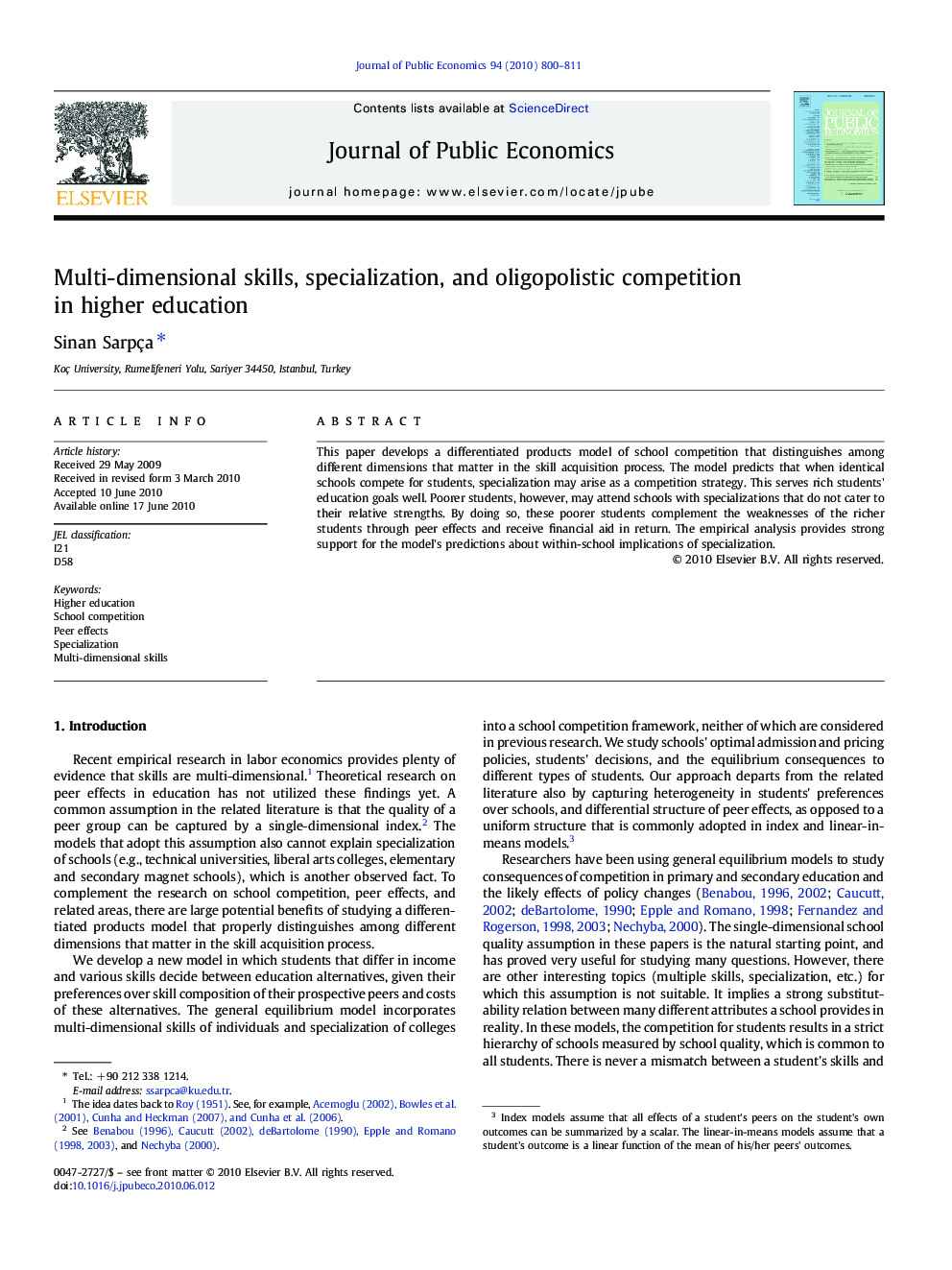| Article ID | Journal | Published Year | Pages | File Type |
|---|---|---|---|---|
| 969419 | Journal of Public Economics | 2010 | 12 Pages |
Abstract
This paper develops a differentiated products model of school competition that distinguishes among different dimensions that matter in the skill acquisition process. The model predicts that when identical schools compete for students, specialization may arise as a competition strategy. This serves rich students' education goals well. Poorer students, however, may attend schools with specializations that do not cater to their relative strengths. By doing so, these poorer students complement the weaknesses of the richer students through peer effects and receive financial aid in return. The empirical analysis provides strong support for the model's predictions about within-school implications of specialization.
Related Topics
Social Sciences and Humanities
Economics, Econometrics and Finance
Economics and Econometrics
Authors
Sinan Sarpça,
